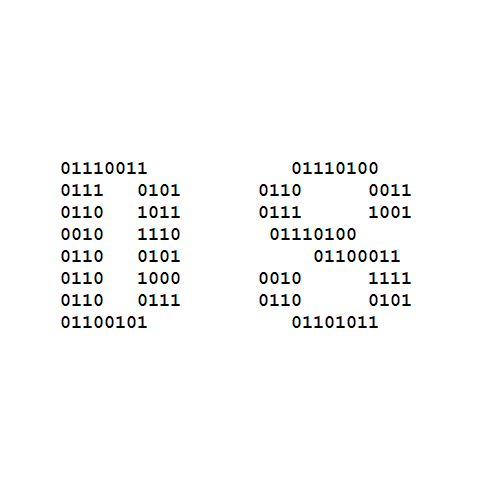

I don’t think so. FLOSS devs never seem to attract FLOSS designers. I’d love to collab with them, but they all seem to like designing not-FLOSS things.


I don’t think so. FLOSS devs never seem to attract FLOSS designers. I’d love to collab with them, but they all seem to like designing not-FLOSS things.


Who said we’re in late stage capitalism? If you ask the libertarians, we’ve been out of any sincere capitalism since WWII.


So how do people go about defederating? Is it just a matter of making new servers, or does it require anything else?
I’m happy to stand up against The Man, but it seems like once the masses get involved they don’t feel personally responsible to preserve what they enjoy. They seem to give general consensus to [Big Tech Company], then [hard-working FLOSS developer] comes in later to fix it.
If I’m going to get “political” here, I almost think people need to be sold more on the importance of self-reliance. One prior historical precedent was around the 1750’s about taxation, and that’s had a nearly non-trivial impact on society. People intuitively grasp land ownership, so it should translate to data ownership as well.


I may be speaking in defense of something I don’t know, but I don’t see a direct problem with other apps (e.g., Threads, Twitter if they change up what they’re doing) to start talking with the fediverse.
The bigger problem is when they start throwing their weight around. The W3C (and groups like Mozilla) have had many strong battles with Google trying weird stuff because they’re the biggest guys in the room (e.g., FLoC).
As long as we can rally behind the loyalist FLOSS geeks, we’ll always be alright.


The trouble with socialism, though, is that any implementation of it strips away meaning in the process of trying to help people.
Meaning comes from a person feeling responsibility for what they do. That responsibility requires exposure to risk if they don’t act.
Almost any policy created to help people without a well-guarded limit will quickly become paternalism and, consequently, strip away meaning.


Can you define “socialism”? I’m a little lost on how any social media with a hosting provider or moderator can ever be socialism.


Right wing? Money is a pretty nonpartisan matter.
Most of the right-wingers have already fled off to Gab, MeWe, or Mastodon.


They might flee into the rest of the world and learn social skills. The horror!


That depends where you stand. CO2 means more flora, as any 5th-grade biology teacher will tell you.
The real place to look for climate change is water movement: rainfall, sea levels, ocean temperature, river levels, humidity, etc.
And, there are redundancies built into the system, such as radiation-consuming and hydrocarbon-consuming bacteria that thrive well and balance out our “destruction”.


Yeah, you get the idea. Things can be always true, but also where we see them wrong. The Sheep in the Field thought experiment shows it clearly.


This will be funny how bad it’ll go. I expect ridiculous blocking coming.
Then come the AI bots who comment…


This plays out like things I’ve seen in real life:


In all fairness, that’s how Twitter did things from what I can understand.
Of course, that can be quite the payroll expense, especially with a weird model with a panoply of interest-based domains.
I’m sure the Reddit employees will be up to it and has all the equipment necessary for it. That protest was about the amazing internal tooling the mods loved using, right?


It’s the emergence of a new community. When things get big, people feel less individually responsible, and that’s how trouble starts.


That really depends on which philosophy you subscribe to.
The TL;DR is that existential and post-modern philosophy say it’s varying degrees of relative, while everything anyone said before ~1800 was saying that facts were immutable.
One fact I can glean is that the data itself may be real (e.g., the wavelengths of light that hit your eyeballs) but the perception is a composite illusion of our mind (e.g., the fact that you just saw a kitty).
You’re forgetting the future stages:


You’ll always have to rely on someone else, unless you build the thing yourself.
The beauty of the fediverse concept is that it’s about as easy as possible to build it yourself.
The cost of running a host is a matter of economical management:
Most open-source is funded as passion projects by devoted geeks who typically already make a living doing other computer things anyway, and fediverse is a bit of the same.
Your reasoning touches on a deep philosophical concept: what is “ownership”?
I’d say owning something is easy enough when you can’t duplicate it (I can’t just copy your car or house to save money). Duplication, however, means the ownership is technically the abstraction of “intellectual property”, which worked fine when duplicating cost money and people paid money for it.
However, the very essence of using a computer on a network is simply using copies. You’re not reading this as I write it, but a copy your computer downloaded.